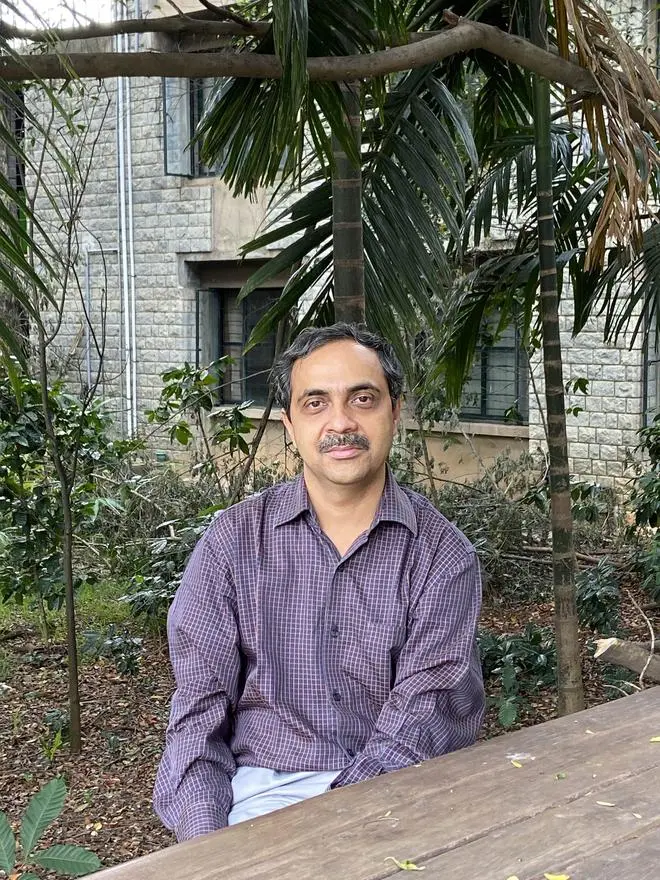A month ago, Nadathur S Raghavan Centre for Entrepreneurial Learning (NSRCEL), the start-up incubator of IIM Bangalore, kick-started ‘Campus Founders’ — a student entrepreneurship programme to support college-based start-up founders and recent graduates to turn their ideas into successful businesses. About 22 college students and recent graduates across academic disciplines currently work out of one of the oldest start-up incubators in the country, slowly turning their ideas into reality, constantly brainstorming, learning, seeking mentorship and preparing to meet potential funders.
“There are a few people who believe that entrepreneurship is their calling and innovation is their deep passion. We want to work with such innovators. Some of them are still in universities, so there are some inherent constraints of understanding markets, configuring business models, creating the right networks and, of course, creating funding opportunities to build an organisation. An incubator could be the best equipped to provide them to these young founders,” says Anand Sri Ganesh, CEO, NSRCEL.
Success stories
Ganesh says that around 10 per cent of the total number of start-ups that come out of the incubator are student-led. He then excitedly explains the start-up project of Shriya Shankar — the founder of a social start-up Sitara Akka. Shriya was a 19-year-old when her project was accepted by the incubator. “She is someone who believes that it was her privilege that enabled her to access good quality STEM education and wanted to encourage students from low-income backgrounds to do so. To enable that, she set up Sitara Akka, which works with around 800 schools across Karnataka, providing children with good quality science and mathematics education,” he says.

Anand Sri Ganesh, COO, NSRCEL
“The NSRCEL programme was a game-changer for my company,” recalls Shriya. “I was straight out of college and did not know much about setting up a company. But NSRCEL helped me with the required mentorship and we were even awarded a grant by Capgemini,” she says.
Ganesh then goes on to talk about a 14-year-old entrepreneur that the team worked with. A chuckle escapes him when he is suddenly reminded that a lot of founders whom the incubator currently hosts are younger than 23. NSRCEL was set up in 2000 before a lot of them were born and when many in the country were still alien to the start-up culture.
Since April 2000, a whopping 1,430 start-ups across sectors have come out of the NSRCEL. Some of them include Amagi, a SaaS unicorn, frozen food company BluePine Foods and diagnostic testing company, Athena Medical Centre. Though Ganesh wasn’t associated with the incubator at the time of its inception, he spiritedly shares the tale behind setting it up. As the name suggests, Nadathur S Raghavan, one of the seven co-founders of Infosys Technologies, was instrumental in founding the Centre, says Ganesh. “At the turn of the millennium, NS Raghavan wanted to exit the company and spend a larger part of this time in his philanthropic pursuits and his other business interests. He wanted to set up a centre for entrepreneurship that invites young entrepreneurs and maybe help build this entrepreneurial mindset and spirit to empower them to create other great companies,” he says.
Giving wings to dreams
An incubator helps start-up founders work on their venture and helps them with networking, mentorship and, sometimes, funding. “The job of an incubator is to provide a safe space for start-ups so that they can discover their own right path. This increases the odds of survival for incubated start-ups,” he says. He also notes that empirically, the survival rate of NSRCEL start-ups is more than 70 per cent.
But that being said, just about seven per cent of the total number of start-ups in India have come out of an incubator or an accelerator. And NSRCEL has produced the highest number among them, according to the data from YNOS Venture Engine, an analytics platform.
On the other hand, even in NSRCEL the acceptance rate for start-ups is just about 5 to 6 per cent of the total applicants; but Ganesh says they are working to scale it up in the coming days.
Applying to the incubator is a fairly easy process, says Ganesh. “Interested start-up founders can fill up a form on our web site.” Post that, founders undergo screening process by the NSRCEL team, mentors and subject matter experts. “At some stage when we believe that the founders are reasonably mature, we also prepare them to be ready for funding,” says Ganesh, adding that the incubator team constantly meets with investors, trying to find potential funder-founder matches.
NSRCEL’s mentors, according to Ganesh, consist of three categories — seasoned entrepreneurs, corporate veterans and venture capitalists. “Almost a third of the entrepreneurs who mentor budding start-up founders are NSRCEL alumni and all of them work pro bono,” says Ganesh. “They absolutely love coming back and engaging with our founders, spending time and sharing their knowledge and even networks, which are very important for starting a business. They also help people access funds. It’s quite heartening to see them giving back to society,” he says.





Comments
Comments have to be in English, and in full sentences. They cannot be abusive or personal. Please abide by our community guidelines for posting your comments.
We have migrated to a new commenting platform. If you are already a registered user of TheHindu Businessline and logged in, you may continue to engage with our articles. If you do not have an account please register and login to post comments. Users can access their older comments by logging into their accounts on Vuukle.